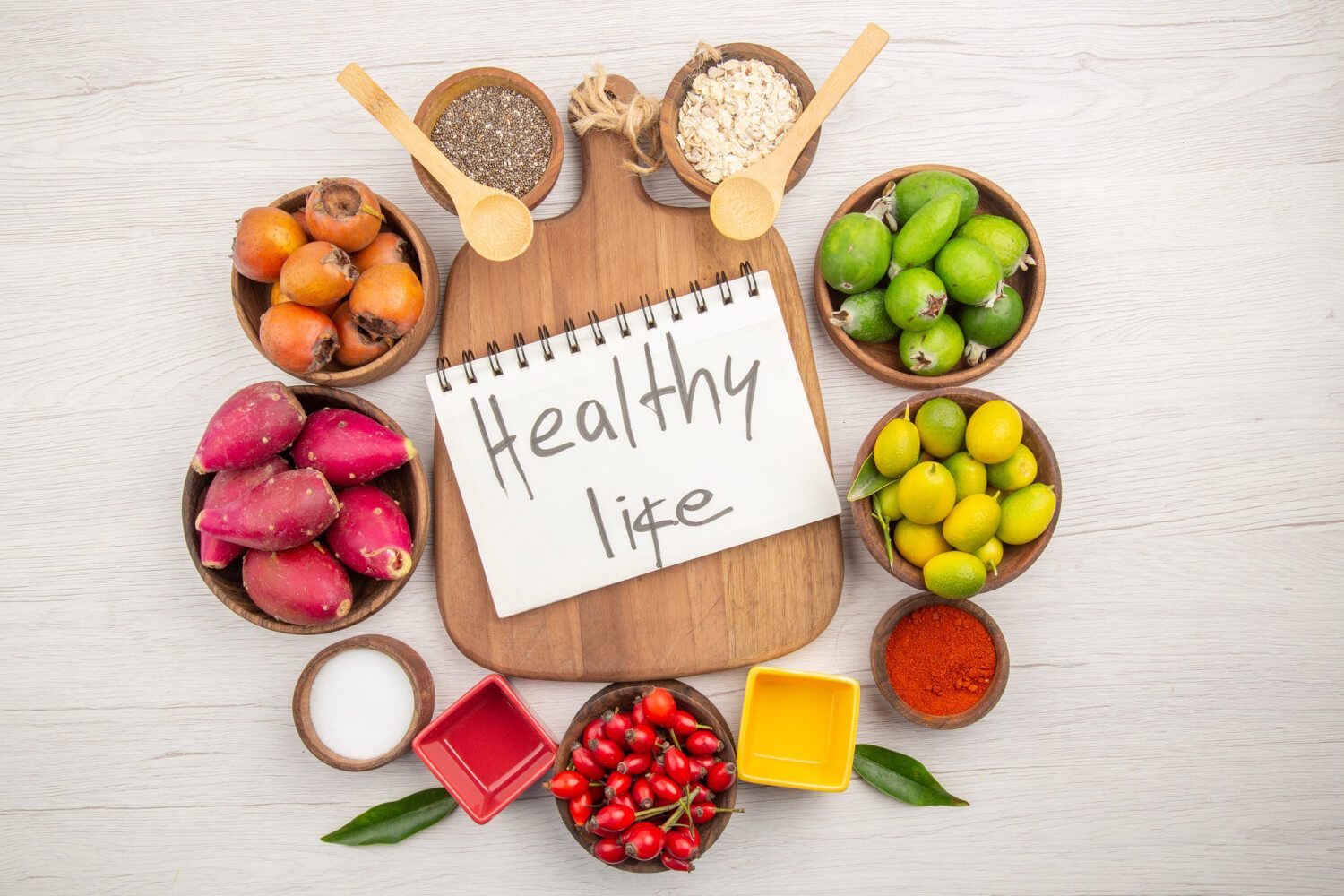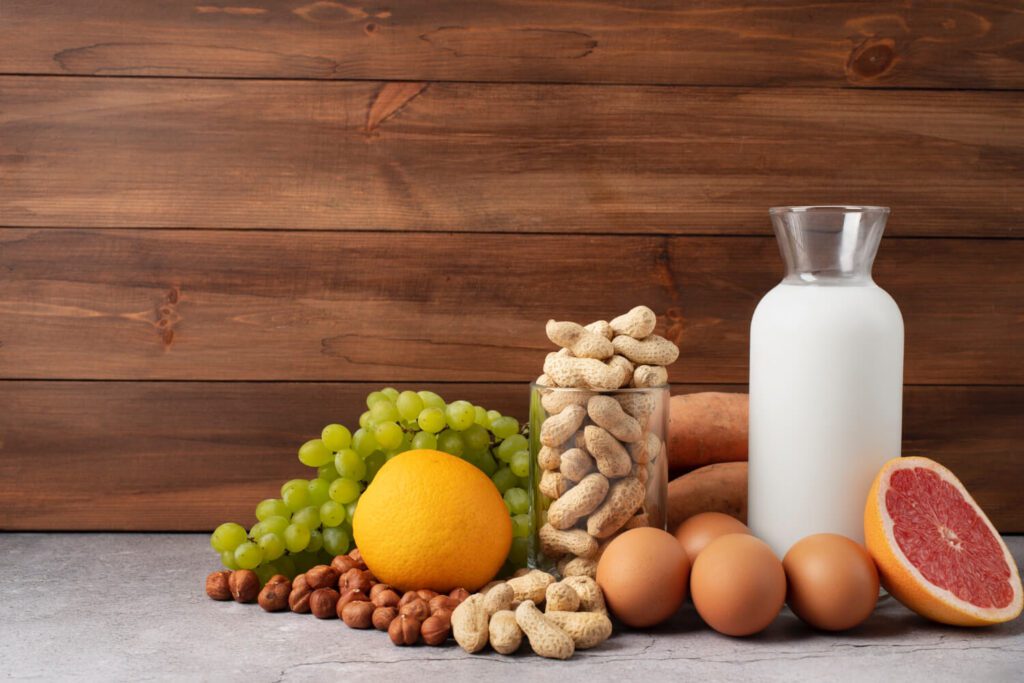Blog
6 Essential Nutrients for Health and Vitality

Melissa Mitri, MS, RD, is a registered dietitian nutritionist, weight loss specialist, and expert health writer with over 15 years of experience in the health and wellness industry. Melissa has worked in a variety of healthcare settings where she helps clients improve their diet through an individualized approach.
Proper nutrition is paramount to optimal health. While many of us know this, it’s not always easy putting it into practice. Not to worry – by focusing on 6 essential nutrients with these dietitian-approved tips, you’ll be on your way to feeling your best in no time.
Your diet affects so many things in your everyday life – how you feel mentally and physically, your mood, energy, and your ability to perform your best during exercise. But nutrition recommendations are often confusing, making it hard to know what is the best way to eat with all the different diets out there. Should you go keto? Should you have more protein? Is vegetarian better?
As a registered dietitian, I encourage you to get back to the basics of good nutrition – and place the focus on nutrient-dense foods. But what are nutrient-dense foods? We’ll answer this question here and uncover the 6 essential nutrients for optimal health.
6 Essential Nutrients for Health
When it comes to the 6 essential nutrients, there are 3 categories we can break them into – macronutrients (carbs, protein, fat), micronutrients (vitamins and minerals), and water. The “macro” nutrients are needed in large amounts while “micro” nutrients are needed in smaller amounts (but are just as important to health as the macronutrients).
1. Carbohydrates
Many of my clients fear carbohydrates (i.e. carbs) because they think it will make them gain weight. In fact, it’s probably one of the most misunderstood nutrients out there. But the truth is, carbs are your body’s primary source of fuel – and we all need them for proper health.
This is true whether your goal is to lose weight, gain muscle, or simply improve your diet choices.
Carbs are found in many nutritious foods such as:
- Whole grains – oats, quinoa, brown rice, whole wheat bread
- Starchy vegetables – potatoes, peas, corn
- Fruit
- Legumes – beans and peas
These types of carbs, also known as complex carbs, should be eaten more often, rather than the simple sugars and carbs found in processed foods like bagels, donuts, cake, candy, cookies, and sugary drinks like soda and juice.
How to eat them: Include complex carbs like whole grains, starchy veggies, fruits, beans, and peas with every meal, filling ¼ of your plate with these energizing foods.
2. Protein
Protein is crucial for building and repairing body tissues and muscles, skin, and hair. They also play a role in hormone and enzyme production, aiding in proper digestion and hormone balance.
Eating more protein is also associated with weight loss, as protein is a slower-digesting nutrient. This means eating more protein with meals can keep you full and hold you over for longer.
Good sources of protein include:
- Lean meat – poultry and fish
- Eggs
- Dairy products – Fat-free or low-fat dairy, cheese, Greek yogurt, cottage cheese
- Legumes – beans, nuts, seeds
- Protein powder – whey or plant-based
Aim to include a variety of these protein sources in your daily diet.
How to eat them: Include at least 1 serving of these foods with every meal and snack to nourish your body and muscles. If you need an extra protein boost, adding one serving of protein powder to your daily routine is a convenient way to meet your protein requirements.

3. Fat
Fat is also necessary in the diet for optimal energy, cell growth, and nutrient absorption. It also helps protect vital organs, insulates the body and keeps it warm, and provides satisfaction with meals.
While there are many different types of fats, it’s best to focus on healthy fats such as monounsaturated and polyunsaturated fats, rather than saturated fats which may increase cholesterol levels. These healthy fats are found in:
- Fatty fish – salmon, tuna, sardines
- Avocados
- Nuts
- Seeds – flaxseed, chia seed, pumpkin seeds
- Olive oil
- Olives
How to eat them: Include 2-3 servings of healthy fats per day as part of your overall diet.
4. Vitamins
Vitamins are essential nutrients required for various functions in the body. They help maintain a strong immune system, supply needed energy, and play a role in maintaining healthy skin, eyes, and bones.
To get in your daily essential vitamins from vitamins A through K, eat a wide variety of foods:
- Fruits
- Vegetables
- Whole grains – fortified cereals and bread
How to eat them: Eat a variety of colorful fruits and vegetables and incorporate vitamin-fortified grains into your daily diet.
If you struggle to maintain variety in your diet, taking a daily multivitamin supplement can fill in the nutrient gaps in your diet.
5. Minerals
Minerals, like vitamins, are micronutrients that play a crucial role in maintaining strong bones, regulating muscle function, and supporting nerve communication.
Several essential minerals are needed for optimal health such as:
- Calcium
- Phosphorous
- Potassium
- Sodium
- Magnesium
These minerals are widespread in foods such as:
- Dairy products
- Leafy green vegetables – kale, spinach, collard greens
- Fruit – bananas and citrus fruit
- Nuts and seeds
- Whole grains – fortified cereals and bread
How to eat them: Include a variety of dairy, fruits and vegetables, nuts, seeds, and whole grains in your diet every day.
While many of these minerals are found naturally in food, not everyone gets in enough of these foods for various reasons. If you are concerned you’re not getting enough, a daily multivitamin and mineral supplement can provide peace of mind.

6. Water
Water is vital for life and is directly involved in virtually every body function including digestion, circulation, and temperature regulation. When you’re well hydrated, you’ll also find that your energy is at its peak and your mind is more focused.
Drinking water can also support weight loss, as seen in one study. In this study, people who drank a glass of water before meals ended up eating less at that meal because they reported feeling more full. Drinking water expands your belly, making you feel full and resulting in you eating less.
But while drinking enough water every day is crucial for optimal health, unfortunately most of us don’t meet the recommended guidelines.
If you struggle to drink enough water, you’re not alone. And especially in the winter, it can be easy to forget as you may not feel as thirsty.
Here’s how to drink more water: Start your day off with a glass of water (even before you have your coffe). Keep water by your bedside so it’s the first thing you drink when you wake up. This will keep drinking water top of mind through the rest of your day.
Additionally, keep your water bottle with you at all times – in your kitchen, at your desk, and in your car so you remember to drink it. If you are not a fan of plain water, you can flavor things up by adding fresh lime, lemon, cucumber, herbs, or a natural water flavoring packet.
Daily water intake recommendations vary based on the individual but in general, aim to drink at least 8 cups (64 ounces) of water every day.
Key Takeaways
Incorporating these 6 essential nutrients into your diet will not only improve your health and well-being but can also reduce the risk of various diseases and conditions. A balanced diet that includes a variety of nutrient-dense foods is key to achieving optimal health.
Remember that eating healthy does not have to be complicated, it’s all about getting back to the basics.
If you’re concerned you’re not getting in enough nutritious foods, taking a quality multivitamin and mineral supplement can provide added assurance that you are providing your body with its daily essentials.

Melissa Mitri, MS, RD, is a registered dietitian nutritionist, weight loss specialist, and expert health writer with over 15 years of experience in the health and wellness industry.
Melissa has worked in a variety of healthcare settings where she helps clients improve their diet through an individualized approach.
- Latest Posts by Melissa Mitri, MS, RD
-
Planning Healthy Meals On A Budget
- -
5 Worst Foods For Arthritis
- -
5 Easiest Fruits and Vegetables to Grow, and Which To Buy
- All Posts
